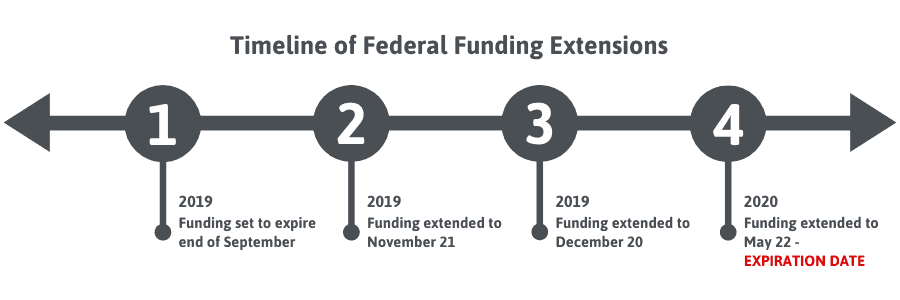This is a special feature that had been produced for National Health Center Week (NHCW). NHCW brings awareness to the various challenges health centers and their patients face and recognizes that patient health starts at the heart of their communities.
Community Health Centers (CHCs) essentially operate like small businesses and need to plan for their futures to ensure stable finances. Health centers often face uncertainty regarding the availability of funding, sometimes having to wait until the last minute to receive confirmation. This is due to the fact that CHCs are federally qualified health centers, meaning they are funded by the U.S. government. Nearly two-thirds of health center revenue comes from Medicaid funding and the grant, Section 330 of the Public Health Service Act.¹ Health Centers are not able to function to the best of their ability when living with financial uncertainty. Funding is essential for the sustainability of health centers.
Community Health Centers provide care to more than 32 million Americans across the country.⁷ CHCs operate primarily on federal funding in order to effectively care for all those patients.² The United States currently spends more on health care than any other country in the world, and a large share of that spending comes from the federal government.³ Our nation’s representatives protect Health Centers through laws and support of this funding. It is important to recognize and appreciate the individuals and bodies who keep our care centers afloat.
The funding for Community Health Centers has often been under jeopardy, with congress periodically making decisions to either continue or end federal support. While funding has often been extended by a few months each time, advocates consistently urge for long-term funding so health centers can continue to provide care without worry. Despite the short-term nature of previous funding efforts, there is often strong bipartisan support for the commitment to Community Health Centers.

Advocacy for the extension of federal funding to CHCs is necessary for Health Centers to function. During the COVID-19 pandemic, this need had been heightened. Around 30 million Americans had lost their jobs, and therefore their health care coverage, during the public health emergency.⁴ This made health centers critical to the response of this crisis. HRSA reported that 94 percent of health centers were functioning as COVID-19 testing sites at the time.⁵
In 2018, 43 percent of health centers were working under negative operating margins. This issue had only been exacerbated by the pandemic, forcing layoffs, furloughs and service terminations, such as dental and vision, and site closures. For example, in March 2020 alone, 60 percent of New Jersey health centers were reporting a negative operating margin of 29 percent. HRSA reported that more than 1,000 health centers across the country remained closed at that time.⁶
The Coronavirus Preparedness and Response Supplemental Appropriations (CARES) Act provided some relief, allocating $1.32 billion to health centers to respond to the crisis. However, this only translated to $50 per patient nationwide. The dire situation further highlighted the necessity of long-term funding for health centers.⁶
Showing appreciation for stakeholders and advocating for federal funding are highly suggested actions to ensure the passing of long-term funding and similar legislation. Help health centers secure funding by continuing to press your congress members on the importance of this issue. Federal funding for Community Health Centers is a bipartisan issue, so everyone can be involved.
OUR CAUSE: Certintell is committed to Community Health Centers, which rely on government funding to function.We support the enactment of long-term legislation to secure consistent funding for health centers. We appreciate nationwide efforts that contribute to our broader goal of expanding health care to all in need accross the country.
GET ACTIVE
➠ Invite legislators to come tour your local health center or advocate for it on social media. Reach out to them to advocate for CHCs!
SOURCES:
¹ “Community Health Center Financing: The Role of Medicaid and Section 330 Grant Funding Explained.” Henry J. Kaiser Family Foundation, 26 Mar. 2019, www.kff.org/medicaid/issue-brief/community-health-center-financing-the-role-of-medicaid-and-section-330-grant-funding-explained.
² “Senate Committee to Vote on Health Center Funding – NACHC.” NACHC, 26 June 2019, www.nachc.org/senate-committee-to-vote-on-health-center-funding.
³ “American Health Care: Health Spending and the Federal Budget.” Committee for a Responsible Federal Budget, 16 May. 2018, www.crfb.org/papers/american-health-care-health-spending-and-federal-budget.
⁴ “About 30 Million Workers Are Collecting Jobless Benefits.” Cohen, Patricia, The New York Times, 24 July 2020, www.nytimes.com/live/2020/07/23/business/stock-market-today-coronavirus.
⁵ Health Resources and Services Administration. “Health Center COVID-19 Survey.” Bureau of Primary Health Care, 17 July 2020, bphc.hrsa.gov/emergency-response/coronavirus-health-center-data.
⁶ Shin, Peter, et al. “Keeping Community Health Centers Strong During the Coronavirus Pandemic Is Essential to Public Health.” Health Affairs, 10 Apr. 2020, www.healthaffairs.org/do/10.1377/hblog20200409.175784/full.
⁷ Mason, B. (2024, August 5). “Community Health Centers Report Record Growth in Patients to 32.5 million.” NACHC. https://www.nachc.org/community-health-centers-report-record-growth-in-patients-to-32-5-million/



